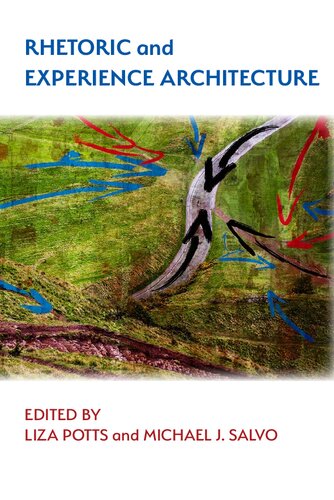

Most ebook files are in PDF format, so you can easily read them using various software such as Foxit Reader or directly on the Google Chrome browser.
Some ebook files are released by publishers in other formats such as .awz, .mobi, .epub, .fb2, etc. You may need to install specific software to read these formats on mobile/PC, such as Calibre.
Please read the tutorial at this link: https://ebookbell.com/faq
We offer FREE conversion to the popular formats you request; however, this may take some time. Therefore, right after payment, please email us, and we will try to provide the service as quickly as possible.
For some exceptional file formats or broken links (if any), please refrain from opening any disputes. Instead, email us first, and we will try to assist within a maximum of 6 hours.
EbookBell Team

0.0
0 reviewsRhetoric is a natural choice for UX work."
--Jakob Nielsen, Nielsen Norman Group, author of Designing Web Usability: The Practice of Simplicity
"I really like the definition of experience architecture. As Potts and Salvo write in their introduction, 'experience architecture requires that we understand ecosystems of activity, rather than simply considering single-task scenarios.'"
--Donald Norman, Nielsen Norman Group, author of The Design of Everyday Things
Rhetoric and Experience Architecture represents the evolving ideas of an emerging area of study. Experience architecture focuses on the research and practice of creating technologies, products, policies, and services that serve the needs of various participants. Experience architecture addresses issues of usability, interaction design, service design, user experience, information architecture, and content management for websites, mobile apps, software applications, and technology services.
Experience architecture also represents an emerging context for the practice of a variety of research and practical skills. These proficiencies are incorporated into commercial design and development work as user experience design, which has become an effective workplace moniker for this assemblage of practices. The study of language, and especially of persuasion, grounds experience architecture. Rhetoric sustains the technology-rich discussion of language and design that characterizes the contemporary exploration of the emerging practice of user experience design, and experience architecture enriches discussion of relevant research and methods. Experience architecture is a professional practice merging the newest technologies with ancient knowledge, hence the need for a volume in which rhetoric and experience architecture are in dialogue. Rhetoric and Experience Architecture includes chapters from twenty-five authors in three countries and eleven US states, representing eighteen universities, research institutions, and design firms.